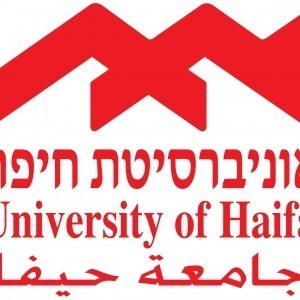Photos of university / #telavivuni
Food Safety and Security at Tel Aviv University is a comprehensive interdisciplinary program designed to equip students with in-depth knowledge and practical skills necessary to address the critical issues surrounding food safety, security, and quality in a global context. The program combines principles from microbiology, food science, public health, policy, and management to prepare graduates for roles in government agencies, international organizations, research institutions, and the food industry. Students will explore topics such as foodborne pathogens, contamination prevention, detection methods, risk assessment, regulatory frameworks, and food supply chain management. The curriculum emphasizes both theoretical understanding and practical application, incorporating laboratory work, case studies, and field projects to develop analytical and decision-making skills. The program also highlights current challenges such as emerging pathogens, food terrorism, globalization of food markets, and sustainable practices. Graduates will be capable of designing, implementing, and overseeing food safety protocols, contributing to public health initiatives, and ensuring compliance with national and international standards. The program fosters critical thinking, research competencies, and a multidisciplinary perspective essential for tackling complex issues in food security. Through collaborations with industry and research partners, students will gain hands-on experience and networking opportunities. Graduates of the program will be prepared to assume leadership roles in ensuring the safety and security of the food supply, ultimately protecting public health and promoting sustainable food systems worldwide.
- 1st semester (Arava Campus): 3-month preparatory studies.
- 2nd semester (Arava campus): Focus on plant sciences and hands-on agricultural learning in arid zones.
- 3rd semester (TAU Campus): focus on Food Safety and Security
- 4th semester (Arava campus): focus on plant sciences and hands-on agricultural learning in arid zones.
Courses
- English
- Biochemistry
- Genetics
- Introduction to Plant Biology
- Principles of Experimental Statistics
- Scientific Writing
- Student Seminar
- Structure and Function of Plant Roots
- Photosynthesis - Theory and Practice
- Practicum
- Introduction to Food Security
- Plant Response to Abiotic Stress
- Food Security & Public Health
- Bioethics and Biotechnology
- Developmental Plant Biology
- Seminar - Selected Topics in Plant Sciences
- Student seminar
- Marine Biology
- Practicum
Requirements
- University degree diploma (Graduation Certificate, copy)
- Official transcripts from all higher education institutions (college or university) you have attended. If your transcripts are not written in English, you need to acquire a translated copy and have it notarized for authenticity.
- Two letters of recommendation, from academic and/or professional sources
- A personal essay up to two pages in length, including your interest in pursuing the MSc Program in Plant Biology, how the program fits into your overall professional growth and how you will contribute to the program and class dynamics.
- CV/Resume
- English Language Proficiency Exam: your TOEFL or IELTS exam scores. Applicants with qualifications from a country where the official language is not English are required to submit either TOEFL (Test of English as a Foreign Language) scores or IELTS (International English Language Testing System) scores. The University's Code is 7704.
- A passport sized photo (light background, headshot only). This photo will be used for your student ID and is not used as part of the admissions process.
- Health Insurance:
- Health Declaration form (to be filled out by the applicant)
- Medical Form (to be filled out by a licensed doctor) The Medical Form is required only after acceptance to the program, but it is highly recommended to begin the process of filling it out in advance.
- $100 USD application fee, payable by credit card or bank transfer. Can also be paid upon arrival.
- Passport copy
Financial Aid
- Students who choose to take part in the agricultural practicum on a local farm will receive tuition assistance.
Scholarships
- Merit-based scholarships
- Israel Ministry of Foreign Affairs scholarships
The Food Safety and Security program at Tel Aviv University offers students a comprehensive education in the critical aspects of food safety, quality control, and security measures to protect food supply chains. This program aims to equip students with the knowledge and practical skills necessary to address the challenges posed by contamination, foodborne illnesses, regulatory compliance, and emerging threats to food security globally. The curriculum integrates disciplines such as microbiology, chemistry, public health, and food technology to provide a multidisciplinary approach to food safety issues. Students examine the principles of hazard analysis and critical control points (HACCP), risk assessment, and regulatory frameworks like those established by international bodies and national agencies. The program emphasizes both theoretical foundations and practical applications, including laboratory work, field studies, and internships with industry partners. Graduates are prepared for careers in food manufacturing, quality assurance, regulatory agencies, and research institutions. The program also covers current topics such as genetically modified organisms (GMOs), food fraud, traceability, and technological innovations in food preservation and detection. Students learn to develop and implement food safety management systems, conduct inspections, and respond to crises involving contaminated products. By studying at Tel Aviv University, students benefit from extensive research facilities, renowned faculty members with expertise in food safety sciences, and collaborations with industry leaders. The program aligns with Israel’s strategic focus on food security and innovation, providing students with opportunities to contribute to solutions for feeding a growing global population while ensuring the safety and integrity of food sources. Overall, the Food Safety and Security program prepares graduates to meet the increasing demands of the food industry and regulatory bodies, promoting public health, consumer confidence, and sustainable food practices worldwide.

